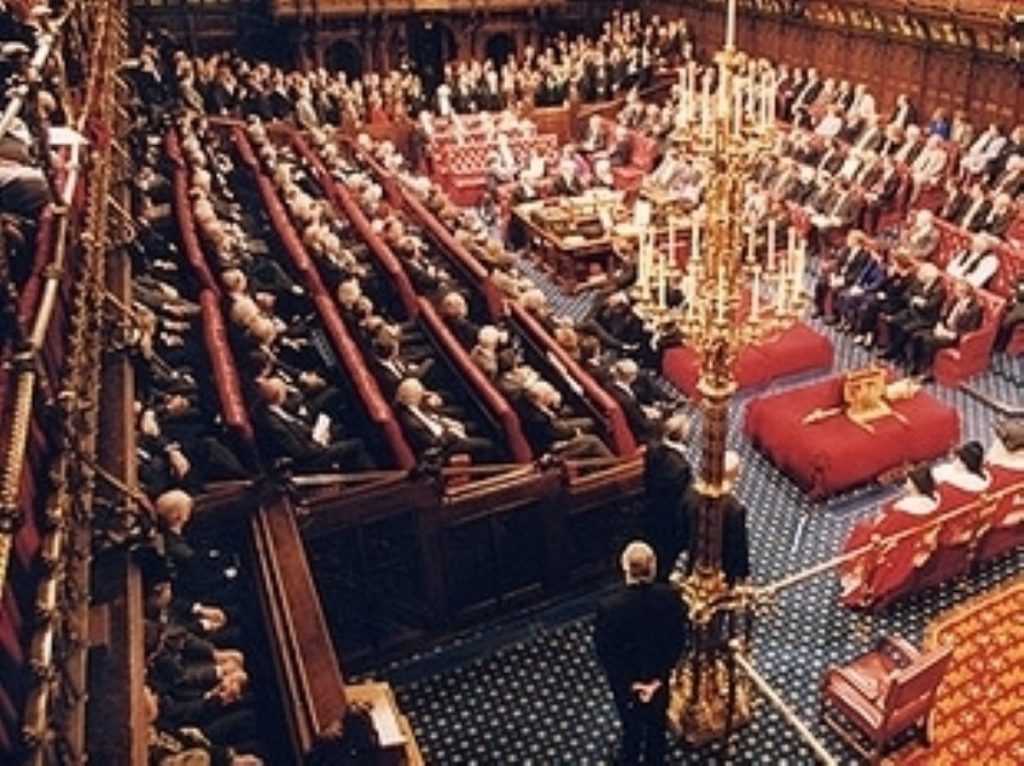Analysis: The Lords’ past, present and future
Does the unelected House of Lords still deserve its privileged position in British politics?
By Rebecca Burns
Following the government’s announcement that change is on its way, business in the House of Lords is rather existential at the moment. The Lords has been forced to establish exactly why it exists.
So the chamber has been transformed into a therapist’s office, full of red leather couches for self-interrogation rather than legislation. Our peers must ask themselves why they are entitled, over and above all others, to place their bottoms in those seats.


Like the privileged echelons of any hierarchy, the upper House has been threatened with reform on a relatively regular basis. The slow rise of the Commons from around the 13th century began the power drain that, 700 years later, led to the loss of the parliamentary primacy of the Lords. A fit of republicanism in 1649 saw Cromwell abolish the Lords outright for eleven years.
A further insult was inflicted on the Lords by the Labour government in 1968 when they introduced the parliament (no 2) bill. This aimed to separate the Lords into voting and non-voting members. Even though the bill proved too contentious to get past the Commons, overall the Lords has certainly not had a restful ride, prodded constantly into change but never really changing.
In 1999 Tony Blair struck the biggest blow in the history of the upper House and slashed hereditary peerages. Although progressive, this opened a can of constitutional worms. Mr Blair didn’t how to proceed further with this odd, historically powerful but outdated body.
Today, Lords remain in limbo while the coalition of the other two main parties has promised to try, yet again, to complete the reform of the Upper House. The government stated in its coalition agreement: “We will establish a committee to bring forward proposals for a wholly or mainly elected upper chamber on the basis of proportional representation.”
Added to this vague commitment to “establish a committee to bring forward proposals” (as announced by previous governments) David Cameron now hopes for “a predominantly elected second chamber”.
The trouble is even Freud would have difficulty unravelling the complicated, tangled psychology of the Lords. Its evolution over 1,000 years has given it a character and identity far beyond the simple label of second chamber. It is home to peers whose families have sat in the chamber for centuries and for whom the history, in the form of its everyday, age old traditions, is alive with meaning and lessons from the past.
But there are also members for whom the complete opposite is true; members who are new to the chamber and looking to reform its outdated, old fashioned and meaningless habits. Baroness Jones confessed recently to “having been mystified and occasionally alienated by some of the more arcane procedures with which I had to come to terms” when she joined the House of Lords four years ago.
Both positions are valid. The question is how to preserve the elements of the ancient inherited body that help govern effectively in future. For Baroness Jones, this means “delivering proper respect for our history and traditions, but not when they get in the way of effective participation and scrutiny”.
Lord Norton of Louth on ‘Lords of the Blog’ points out the delicacy of the system: “We have the benefit of a second chamber but without the divided accountability that would derive from having a second elected chamber.”
The position of power without electoral mandate means that the Lords can question a populist agenda in the Commons but still be overruled. Legislation affected by media pressure, for example, can be questioned in the Upper House without fear of losing electoral popularity. The Lords made on average 80 amendments to each government Bill in the 2007/08 and 2008/09 sessions.
The problem is not isolated to the Lords, however. The two chambers have developed fighting power off one another and you cannot reform one without drastically affecting the procedure of the other. If the electorate has a say in the makeup of the second chamber, the primacy of the Commons becomes problematic. Added to that dilemma, do we want a chamber that only questions the other House, or one that is a definitive challenge to the Commons?
It’s hard to see how a body borne out of centuries of privilege can realistically adapt to our democratic process if it hasn’t already managed. Sufficient reform would most likely result in abolition rather than reform, even if in all but name.
Lord Norton points out the importance of determining “what we expect of parliament in our political system and therefore the role and relationship of the two Houses and their relationship to the other elements of our political system.”
He wisely notes that “once we know what we expect of the second chamber as an integral part of our constitutional arrangements, then and only then can we start to determine the composition best suited to the fulfilment of that role.”
To proceed without knowing exactly what we have to lose from our current Upper House, history and all, would be foolish. To proceed without laying out exactly what we require from reform, involving the Commons and all would also be foolish. The approach of the current government is dangerous for both chambers and redolent of change for change’s sake. There are many noble behinds at stake here. Let’s not give them a thrashing without due reason.

